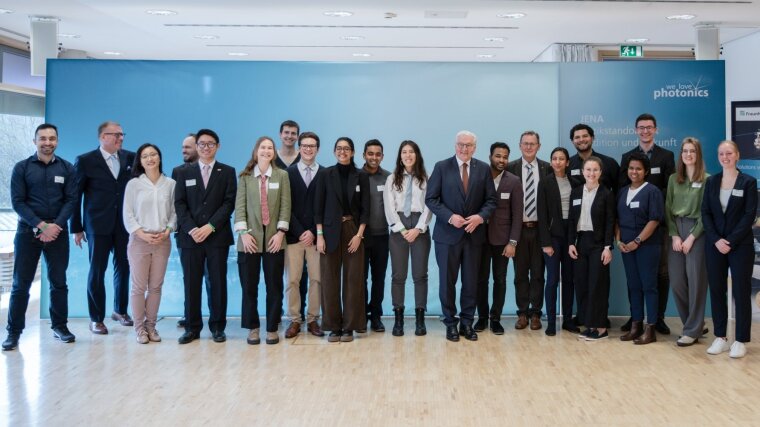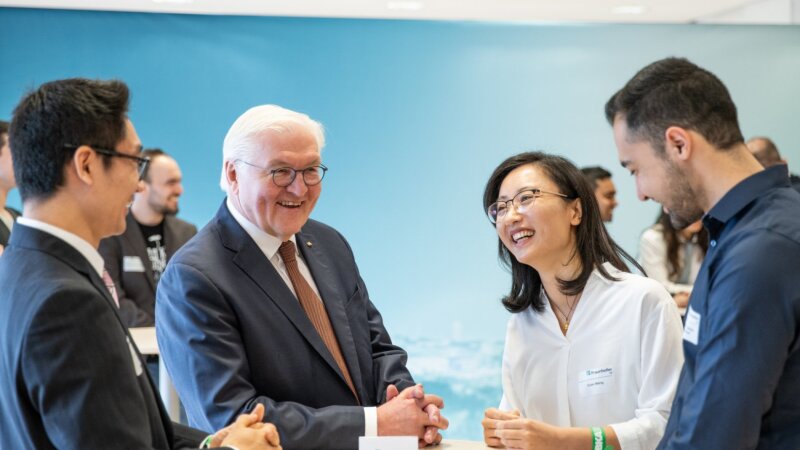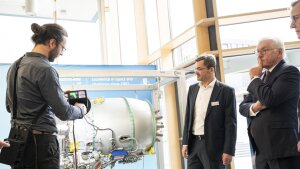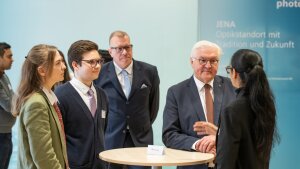
- Light
Published: | By: Gleb Chupakhin
Federal President of Germany (in German: Bundespräsident) Frank-Walter Steinmeier traveled to Jena on February 22nd as part of "Workshop of Change": a series of discussions conducted in cooperation with the BMW Foundation and the Carl Zeiss Foundation. The series highlights successful transformations of economy and society that serve as encouraging examples to the rest of Germany and the world. The Bundespräsident visited the Fraunhofer Insitute for Applied Optics and Precision Engineering (IOF) as well as Carl Zeiss AG and spoke to students and researchers of the Abbe School of Photonics during his time in Jena.
He praised the city as a site of successful transformation that is contributing to the creation of new opportunities for society, economy, and industry. The Bundespräsident said that Jena cannot be overlooked in this regard:
Jena is one of those beacons whose shine has managed to reach the whole world.
Bundespräsident Frank-Walter Steinmeier: ©
Federal President Frank-Walter Steinmeier speaks with Abbe School of Photonics students and researchers
Image: Fraunhofer IOFWith his visit, he acknowledged Jena's development into an internationally renowned center for optical and optoelectronic research and development. This is partly because Jena has become and remained an open-minded location. Abbe School of Photonics students from many countries conduct research at many companies and research institutions, among them the Fraunhofer Institute. International students, according to the President, are essential to ensuring international connectivity.
Fraunhofer IOF researchers present a handheld 3D scanner for digitizing complex objects to Federal President Frank-Walter Steinmeier.
Image: Fraunhofer IOFShaping Digital Change and Societal Transformation
Researchers presented the Federal President with new technological approaches to societal challenges and future transformations in modern life and technology during his visit. Jena's optical key players are involved in numerous space missions, particularly those related to Earth observation and climate research. Additionally, work is underway on a mobile 3D hand scanner that aids in the digitization of complex objects such as aircraft engines. State-of-the-art sensor technology, like the system presented, is expected to support digitization in industrial manufacturing in the future.
Federal President Frank-Walter Steinmeier speaks with Abbe School of Photonics students and researchers
Image: Fraunhofer IOF
The visit concluded with a dialogue involving international students of the Abbe School of Photonics and young researchers in the fields of optics and photonics. The conversation underscored the importance of an open-minded culture as the foundation for an excellent and internationally competitive research landscape.


